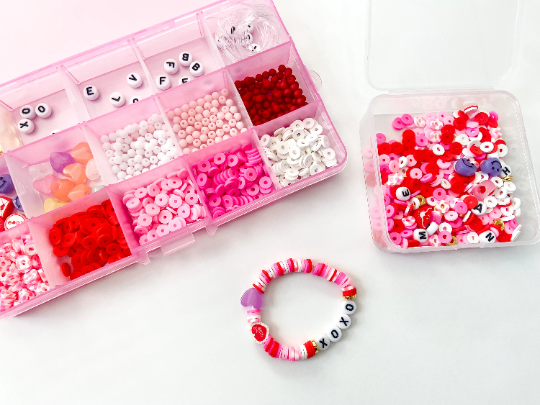

One of your main concerns as a mother is likely that your child grows up healthy, kind, and also academically successful. Though a child’s learning at a young age should happen through play, there are a lot of ways to introduce executive functioning skills into those play experiences, which will in turn lead to better academic performance through middle school, high school, and beyond.
As an educator, I work with a lot of kids that show different levels of success in the classroom. One thing I have found is that almost as much as natural ability determines success, so too does a child’s executive functioning skills. But before you learn about how to integrate executive functioning skills into play and routines, I wanted to review what executive functioning skills are.
What are executive functioning skills?
Executive functioning skills are skills that help the brain control and execute behaviors necessary to achieve goals. In order to reach big goals, small goals must be set and accomplished along the way, and it is the executive functioning skill-set that leads to those small goals being accomplished.
Examples of executive functioning skills include:
- planning (thinking ahead about what is going to happen and when)
- time management (understanding how long it will take to do something and then using time wisely)
- task initiation (getting started on something without repeated reminders and prompting)
- organization (having a system that includes a place for everything and everything in its place)
- problem solving (thinking through challenges without getting stuck and shutting down)
Start building executive functioning skills from a young age
Many activities that you do with your kids can easily be tweaked to start teaching these basic skills. As a busy mom, planning your time with your kids ahead of time and discussing those plans with them is the first step to integrating these skills into your routine. Not only are you holding yourself accountable to follow through on your plans, but you’re also showing your kids that you are a planner and you follow through with the things you say you’re going to do.
There are so many little things you can do to start now. Here are a 6 other ideas:
Create a visual schedule of your week
This is a good idea for kids even as young as 2. By creating a visual schedule using pictures and displaying it somewhere that your kids can see it, they know that there are plans in place for what you’re spending your time doing. This is an effective strategy for teaching both planning and time management.
Talk with your kids to estimate the amount of time a task will take
The first step to successfully managing time is understanding how much time you have and how long each thing will take. By talking with your kids as you’re setting up an activity or cooking dinner to help them approximate how long that will take, you’re going to start teaching them how much can fit into an allotted amount of time.
Kids love time from a young age! By teaching them to actually start understanding the value and length of time, they will more successfully understand how to manage their time later in their academic life.
Use timers to encourage focused time
Kids as young as two or three can start working on staying focused for longer periods of time (10 minutes is a baseline to work towards). By using timers, you’re teaching your kids how long a certain amount of time is, but you’re also helping them start to understand how to stay focused.
Once your child understands the task or activity, they should be able to both start and finish it on their own, but of course that won’t happen all the time and can just be used as a goal to work toward.
Create a weekly checklist of plans and activities
Kids should start being able to follow simple checklists when they’re five or six, so setting up a weekly checklist of activities and plans can be teach them organization and task initiation. Checklists will be so important as they get older, and kids LOVE checking things off. If you haven’t ever done a bucket list or large checklist, get ready. Kids feel so accomplished when checking the boxes–and this is something you should harness.


Help kids understand sequencing in stories
During bedtime stories or other times you’re reading with your kids, ask them to tell you the order that plot points happened or tell them two plot points and ask which happened first. Understanding before and after and being able to order events will help kids with working memory and also reading comprehension.


Play games that require taking turns
It is hard for kids to learn self-control. The more you practice by giving them opportunities to take turns and eventually learn to lose, the more self-control kids will learn to have. It has taken years for my six year old to be okay with waiting for her turn during a game, and she still sometimes has trouble accepting losing a game. These are skills that kids learn through experience.
What now?
This is not at all an exhaustive list of ways to implement executive functioning skills into your routine, but it’s a place to start.
Here at the Playtime Planner we’re intentional (and passionate) about creating activities and routines that integrate these skills into your already jam packed weeks. Grab our FREE Low-Prep Kids Activities Starter Guide to start implementing these ideas today!
Tell me in the comments below one thing you’re already doing or one thing you are going to start doing today!







